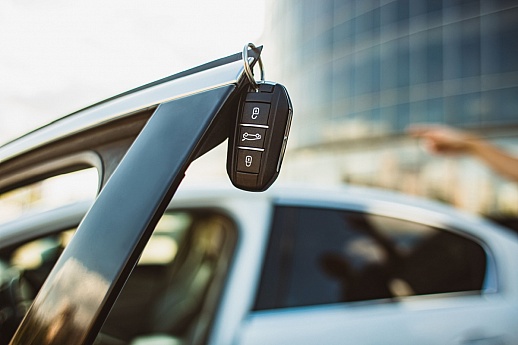What Is Considered a Clean Driving Record? How It Affects Your Insurance Rates
Insurance companies look closely at your driving history when setting your rates. If you’ve stayed out of trouble on the road and your record is clean, you are more likely to be eligible for lower premiums, better discounts, and more favorable policy terms.
But did you know that a single speeding ticket can raise your car insurance premium by $582 per year on average? That increase can last for years and have a long-term impact on your record and how insurers respond to you.

In this article, we’ll explain what qualifies as a clean driving record, how it directly affects your insurance rates, and what steps you can take to maintain or restore a clean status.
What Is a Clean Driving Record?
A clean driving record usually means you haven’t had any moving violations, at-fault accidents, DUIs, or license suspensions in recent years. Most insurers look at the past three to five years when reviewing your history, though some serious offenses like DUI or DWI, reckless driving, or hit-and-run accidents can stay on your record for longer.
What Shows Up on Your Driving Record?
When someone pulls your motor vehicle record (MVR), or the official history tied to your license, they may see the following:
- Past convictions for speeding, running a red light, failure to yield, texting while driving, etc.
- Crashes that were reported to the state
- Any points assessed under your state’s point system
- The status of your license and whether there are any suspensions, revocations, or reinstatements
- Serious offenses like DUI or DWI, reckless driving, and hit-and-runs
- Commercial license endorsements, restrictions, and disqualifications, if applicable
Not everything is included, though. For instance, parking tickets do not show up on your MVR. However, if you don’t pay your parking tickets and it leads to a suspension, that suspension would likely show up. Also, insurance claims are not included on your MVR.
How to Check Your Driving Record
Finding your MVR starts at your state’s DMV or BMV website. For instance, if you lived in California, you would go to dmv.ca.gov to get started.
From there, search for “Driving Record” from the website’s search tool. Typically, you can choose between a three-year, five-year, or full history, and download a PDF version for a small fee.

The site will likely ask you if you want an unofficial or certified copy. If you need your MVR for your employer or the court, then go with the certified copy.
Note: You will likely need your driver’s license number to order your MVR.
How to Clean Your Driving Record
Some violations, like speeding tickets and driving without insurance, stay on your record for years. But there are steps you can take to improve it over time.
Drive Carefully Going Forward
Insurers typically review the last three to five years. So the most effective way to clean up your record is to avoid new violations. MVR retention and point windows vary by state and offense. For example, minor violations often expire after three years, while serious offenses like DUI and driving with a suspended license remain for up to ten years.
Complete a Defensive Driving Course
Many states let drivers reduce points or dismiss minor violations by taking an approved defensive driving course. These are often available online. Once completed, the court or DMV may remove points, and some insurers may apply a discount.
Check Your Record Regularly
Request a copy of your driving record from your state DMV at least once a year to look for outdated or incorrect entries. If you spot an error, report it right away with supporting documents.
Explore Expungement or Point-Reduction Programs
Some states allow point reductions. For example, Ohio allows a two‑point credit for a remedial course once in any three‑year period, and Delaware gives a three‑point credit after a defensive‑driving course.
In others, like Missouri and South Carolina, points decrease automatically with time. Missouri reduces one-third of the points after one year, one-half after two years, and clears the record after three years. In South Carolina, points are cut by half after one year.
Make sure to contact your DMV to find out what’s available where you live.
Seek Legal Help for Serious Charges
For more serious violations, such as DUIs or reckless driving, it’s best to consult an attorney. In some cases, legal representation can help reduce the charge, challenge the conviction, or negotiate alternative penalties that don’t impact your driving record as severely.
How to Fix an Incorrect Driving Record
Errors on your driving record can cost you higher premiums and limited insurance options. Here’s how to correct them.
Request Your Driving Record
Start by ordering a copy of your official driving record from your state’s DMV. You can usually request it online, by mail, or in person. Some states charge a small fee of up to $20. For instance, California charges $2 online or $5 via mail, New York charges $7 online, and Texas charges $7 to $20 depending on record type.
Review it carefully
Look for tickets that were dismissed, violations you didn’t commit, or any duplicate entries. Even minor clerical errors can impact how insurers evaluate your risk.
Gather Documentation
Start by collecting any relevant paperwork that supports your correction request. This could include payment receipts, court dismissal notices, or letters from the ticketing agency.
Submit a Correction Request
Each state has its own process, but most allow you to submit corrections online or by mail. Include copies of your documents and clearly explain the error you’re disputing.
Follow Up
Processing times vary, so check back to confirm the correction has been made. Once resolved, your record will reflect the change, which could improve your insurance rates.
Handling Minor Violations
They may seem insignificant, but minor violations can still affect your driving record and insurance if not handled properly. Here are the right steps you can take to prevent long-term consequences:
Address Tickets Promptly
Whether you plan to pay it or dispute it, make sure you handle your ticket sooner rather than later. Ignoring it could mean more fees, losing your license, or even legal trouble.
Consider Traffic School
Check with your court or DMV before paying the fine to see if this option is available. If you’re eligible, traffic school can also reduce the impact of minor violations. Many states allow drivers to complete an approved course to keep it off their record.
Follow Up on Your Record
After resolving the ticket, don’t assume the issue is closed. Request a copy of your driving record to confirm it has been updated. Errors or delays can cause violations to remain on file longer than necessary, which may affect your insurance.
Know How Long It Stays
Finally, be aware of how long the violation will stay on your record. Minor infractions usually stay on your record for one to three years. A single ticket may not drastically raise your rates, but repeated offenses can lead to higher premiums or limited coverage options.
How a Clean Driving Record Affects Insurance Rates
Insurance companies rely on your driving history to assess how likely you are to file a claim. If you’ve avoided violations or accidents, they’re more likely to consider you a lower risk, which usually means you’ll pay less and get more affordable premiums.

On average, after one speeding ticket, full-coverage premiums go up by about 22% to 25% nationally. In some states, the jump is even bigger. For instance, after one speeding ticket, drivers in North Carolina might see a jump by nearly 49%, while those in New York might only see a 7% increase.
At-fault accidents can have an even greater effect. On average, they raise insurance premiums by approximately 43%, which could add $800 or more to your yearly costs.
Benefits of Maintaining a Clean Driving Record for Insurance
A clean driving record lowers your premium and also opens the door to better policy options, added discounts, and long-term savings that drivers without violations often miss.
Lower Renewal Rates and Loyalty Perks
Insurers reward consistency. If you’ve stayed violation-free for several years, you may see a smaller rate increase at renewal and even access exclusive offers.
Claims-Free Discounts
Many providers reward safe drivers with a no-claims bonus, reducing your premium for every year you go without making a claim. When you combine it with other discounts, this can help you save on car insurance over time, sometimes hundreds of dollars per year.
Access to Better Coverage Options
Preferred drivers may qualify for perks across various types of car insurance, such as accident forgiveness or a vanishing‑deductible program, and generally get better rates.
Stronger Negotiating Power
A clean history makes you a desirable customer. When you’re shopping around, it can help you negotiate better rates or track down cheap car insurance quotes, especially if you’re changing providers or bundling policies.
Protection Against Surcharges
A clean record helps avoid violation‑related surcharges, though market‑wide rate increases can still occur.
What Is Considered a Clean Driving Record for Employment?
For commercial driving, employers must follow FMCSA requirements. Employers hiring for delivery, transport, or driving jobs often run motor vehicle checks to ensure you have an acceptable driving record for employment. This means:
- No DUIs or substance-related charges
- No reckless or dangerous driving convictions
- Minimal or no recent moving violations
- No suspended license
FAQ
How Long Does Reckless Driving Stay on Your Record?
Reckless driving typically stays on your driving record for three to ten years, depending on your state’s laws and the severity of the offense. For example, in Virginia, it stays on your record for 11 years, while some other states, like Florida, treat it as a misdemeanor. Over time, the impact on your insurance lessens but won’t disappear overnight.
How Often do Insurers Check My Driving Record?
When you apply for a policy or renew one, expect the insurer to pull your MVR. They may also check it if you add a vehicle or driver, make policy changes, or file a claim.
If My Ticket Was Dismissed or Reduced, Will My Insurance Still Go Up?
It depends on whether there was a claim from the same incident. The claim may influence the price of your insurance, even if the ticket was dismissed. Generally, though, if the court dismisses your case or reduces it to a non-moving offense with no points, then the conviction is not reported in a way that triggers an increase to your insurance rates.
Final Thoughts
Your driving record directly impacts your insurance costs, job opportunities, and your overall freedom behind the wheel. A clean record gives you more options and lower rates.
If it’s not perfect, take steps to improve it. Drive carefully, review your record regularly, and stay informed. The better your record looks, the more control you’ll have moving forward.



